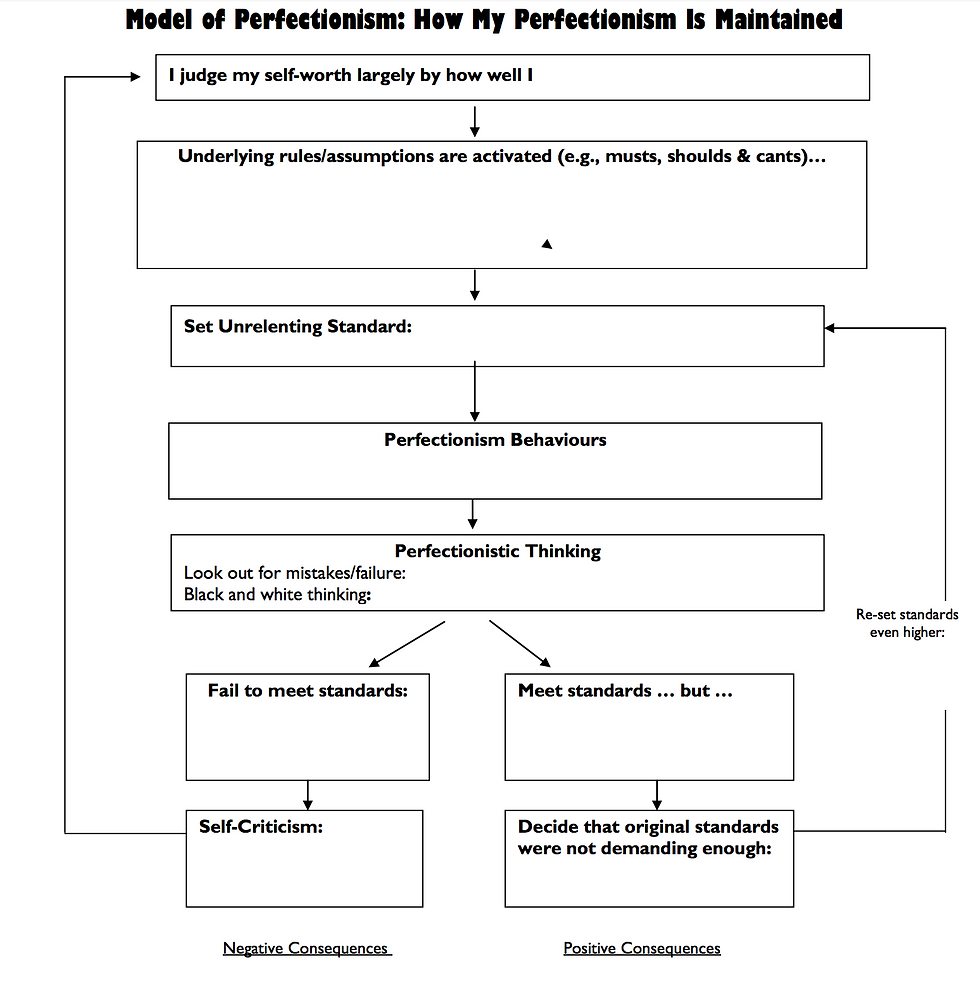Perfectionism and Its Tie to Social Phobia, Obsessive Compulsive Disorder, Anxiety, Depression, and
- Alessandra Rizzotti, MSW, ASW, RYT-200

- Aug 29, 2020
- 2 min read
Updated: Oct 19, 2022
"Progress, not perfection." It's an adage you hear often in the addiction community. Oftentimes, people with addictions feel as though if they can't quit their addiction perfectly, they're not being sober the way they are "supposed" to be. This then causes a cycle of shame or pain about their addiction, which can lead to defeat or giving up. Thus, self-compassion is key to working through addictions...which starts with noticing progress and the small actions taken towards quitting.
According to the National Social Anxiety Center, perfectionism has been on the rise in the last 30 years, whether it is "self-oriented, socially-prescribed, or other oriented." The problem with perfectionism is that it causes one to set unrealistic ideals of themselves and others, which can lead to anxiety, depression, suicidal ideation, and avoiding goals.
How can you identify if you have perfectionism? This sheet helps identify your patterns.
How does perfectionism keep going? Oftentimes perfectionism is the way in which people prove their self-worth. Thus, the key to transforming this behavior is to transform the relationship one has to their self-worth.

How do you work through perfectionism? It starts with noticing your patterns and why you have set high standards for yourself. These modules from the Center for Clinical Interventions are quite helpful in working through perfectionism.
I too can help you modify perfectionistic behavior, thoughts, and feelings through CBT techniques. Set up an appointment today.
Comments